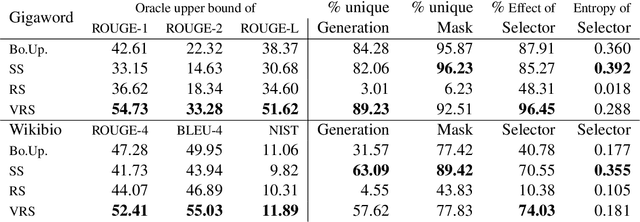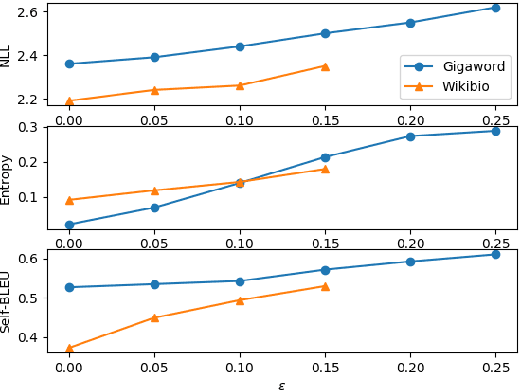Select and Attend: Towards Controllable Content Selection in Text Generation
Paper and Code
Sep 10, 2019



Many text generation tasks naturally contain two steps: content selection and surface realization. Current neural encoder-decoder models conflate both steps into a black-box architecture. As a result, the content to be described in the text cannot be explicitly controlled. This paper tackles this problem by decoupling content selection from the decoder. The decoupled content selection is human interpretable, whose value can be manually manipulated to control the content of generated text. The model can be trained end-to-end without human annotations by maximizing a lower bound of the marginal likelihood. We further propose an effective way to trade-off between performance and controllability with a single adjustable hyperparameter. In both data-to-text and headline generation tasks, our model achieves promising results, paving the way for controllable content selection in text generation.
 Add to Chrome
Add to Chrome Add to Firefox
Add to Firefox Add to Edge
Add to Edge